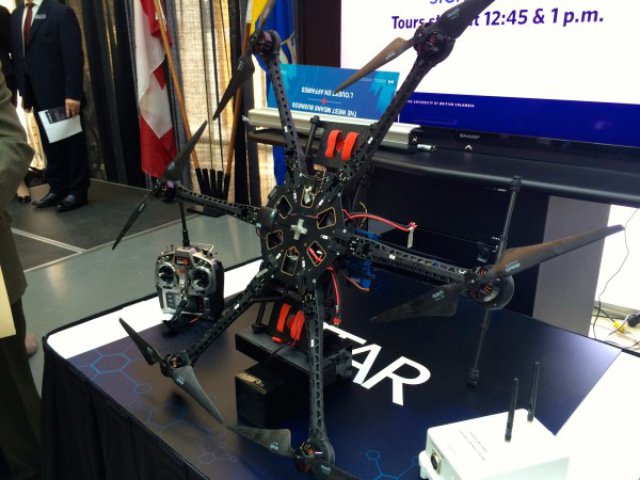The Canadian Federal Government announced Tuesday that they are financially backing a new defence and aerospace innovation programme at UBC Okanagan. Minister of State for Western Economic Diversification, Michelle Rempel, was on hand to announce the $3.8 million in funding to support the establishment of the Survive and Thrive Applied Research Facility (STAR).
“This is the next step in the evolution of Kelowna and the Okanagan really becoming an innovation hub in western Canada,” says Rempel. “It is very significant because it will help create jobs and economic growth in a new sector within the region.”
The facility’s focal point is research, development and innovation in the sectors of human protection and survivability, as well as performance, in extreme or remote conditions.
“The main focus is working on the Canadian military survivability systems to protect men and women in uniform,” explains Rempel, as she listed the governments five main areas of concern; personal protective equipment, vehicle armour, secure communication, unmanned aerial vehicle technology and its related commercial applications.
“But beyond that, unmanned vehicle systems are being deployed right here in the Okanagan to help monitor vineyard health, so I think this is going be such a wonderful hub and it’s going to attract people and companies from around the world.”
Rempel proudly says this facility is the first aerospace and defence focused organization of its kind in western Canada and for her it is a privilege to be able to talk about the Okanagan as attracting investments in these two sectors.
“I’m just absolutely blown away with the breadth of industries that are emerging here, the amount of talent and human capital coming to this region and the investment that is coming here. I really think in 10-years-time we are going to look back at this time as a start to a real boom time for this region.”
At the facility, small- and medium-sized enterprises (SMEs) will have access to a suite of sophisticated equipment to aid in engineering, destructive testing, and rapid prototyping.
“I am excited to see what STAR has in store for students next,” shares 21-year-old Computer Science undergrad student Ephraim Nowak, who says this investment will allow him to work with world-class equipment and facilities.
STAR is currently focused on working with unmanned aircraft, like drones, which are engaged in projects up and down the Okanagan Valley, conducting aerial crop surveillance for wineries and orchards alike.
They are also working on a new impact-absorbing material called Amourgel which they hope could save lives in both combat and in high-impact sports like hockey, where concussions are all too common.
Photo: (UAV) used by STAR to monitor crop health – Carmen Weld
Source: Castanet

